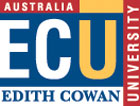Bachelor of Information Technology
Bachelor of Information Technology
This course will prepare you for careers in the fields of information technology, IT management and cyber security. In your first year, you’ll be introduced to concepts including programming, mathematics, networking, databases and computer security. You’ll then develop advanced skills in IT that include web development, data management and visualisation…
Categories
COURSE DESCRIPTION
This course will prepare you for careers in the fields of information technology, IT management and cyber security.
In your first year, you’ll be introduced to concepts including programming, mathematics, networking, databases and computer security. You’ll then develop advanced skills in IT that include web development, data management and visualisation in an enterprise context, IT security management and project management. You’ll also tackle complex IT projects – either with peers or on your own.
Course learning outcomes
Apply broad knowledge of concepts, principles and techniques in the discipline of information technology, including management, processing and communication of data.
Interpret and analyse complex information technology problems using systems thinking, design thinking and systems analysis.
Apply discipline knowledge, problem solving and creative thinking skills to anticipate challenges and produce solutions to contemporary IT problems.
Demonstrate technological literacy by finding, evaluating and using relevant tools and information from a range of sources.
Communicate IT knowledge and ideas clearly and coherently to technical and non-technical audiences.
Apply an understanding of diversity and a global outlook, including Aboriginal and/or Torres Strait Islanders perspectives, when designing information systems.
Work collaboratively and demonstrate initiative on complex IT projects with consideration of professional ethics.
Demonstrate autonomous and ongoing learning in the discipline of Information technology to ensure continued relevance of skills and knowledge.
Career Opportunities
This course prepares graduates for a range of careers via practical experience in analysing and solving real world problems in information technology and related disciplines, underpinned by strong theoretical concept knowledge. Over the course of the degree students have the opportunity to undertake international study tours, work integrated learning experience and internships in their chosen field.
Possible future job titles
Computer Support Officer, Systems Analyst, IT Consultant, Systems Administrator, Software Support Officer, Project Manager, Systems Integrator, Data Analyst
REQUIREMENTS
There are various ways to meet our admission requirements, such as:
Secondary school results
Successful completion of one year of tertiary study from a recognised institution
Completed Diploma program from a recognised institution
English competency requirements:
IELTS Academic: An overall band minimum score of 6.0, with no individual band less than 6.0. (Results are typically valid for 2 years and online tests are not acceptable.)
TOEFL iBT: 70 (no individual score less than 17)
TOEFL Paper-Based Test (PBT): Minimum score of 550, including Test of Written English of 5 or better. (Results are typically valid for only 2 years.)
Pearson Test of English (PTE) Academic: 52, with no scores less than 50. (Results are typically valid for only two years.)
EDUCATIONAL INSTITUTION
Edith Cowan University (ECU) is a large, multi-campus institution serving communities in Western Australia and internationally.ECU was awarded university status in 1991, but despite its relative youth, the University has a proud history of more than a century of service to education in Western Australia and is recognised for its teaching and learning, excellence in research, and partnerships with the community.We have more than 23,300 students, including around 18,500 undergraduates and 4,800 postgraduates. Approximately 3,600 international students attend the University, originating from 104 countries.We are a progressive University with courses developed through ongoing industry input, and employing lecturers who engage fully with their students. We’re a university that knows while knowledge is important, understanding comes from experience –experience that enables you to adapt what you’ve learned to whatever opportunities come your way. Because that’s when you do more than just survive in this world. You thrive in it.




